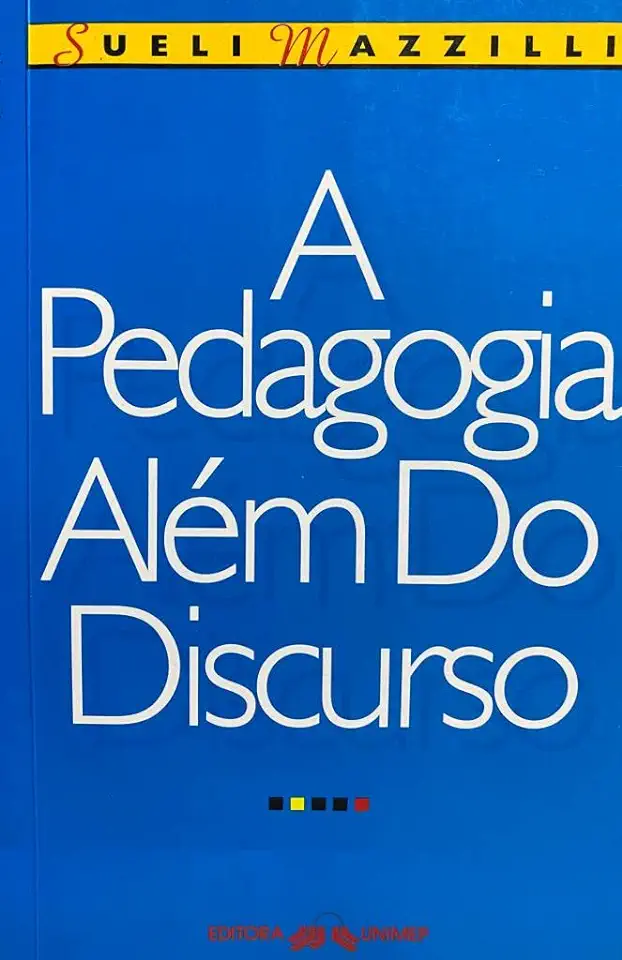
Pedagogy Beyond Discourse - Sueli Mazzilli
Pedagogy Beyond Discourse: A Critical Examination of Language and Power in Education
Introduction
In her groundbreaking book, "Pedagogy Beyond Discourse: A Critical Examination of Language and Power in Education," Sueli Mazzilli offers a powerful critique of the dominant discourse in education and its impact on teaching and learning. Drawing on a wealth of research and experience, Mazzilli argues that the current focus on standardized testing, accountability, and efficiency has led to a narrowing of the curriculum and a devaluing of critical thinking and creativity. She calls for a transformative pedagogy that goes beyond the transmission of knowledge and skills to empower students to become critical thinkers and agents of social change.
The Problem with the Current Discourse in Education
Mazzilli begins by examining the current discourse in education, which she argues is dominated by a narrow focus on standardized testing, accountability, and efficiency. This discourse, she argues, has led to a narrowing of the curriculum and a devaluing of critical thinking and creativity. Teachers are forced to teach to the test, and students are forced to learn a narrow range of facts and skills. This has resulted in a system that is more concerned with producing compliant workers than with educating well-rounded individuals.
The Need for a Transformative Pedagogy
Mazzilli argues that the current discourse in education is not only ineffective, but also harmful. It is creating a generation of students who are unable to think critically or solve problems. They are also more likely to be disengaged from school and to drop out. In order to address these problems, Mazzilli calls for a transformative pedagogy that goes beyond the transmission of knowledge and skills. This pedagogy must be based on the principles of social justice, equity, and democracy. It must also empower students to become critical thinkers and agents of social change.
Principles of a Transformative Pedagogy
Mazzilli outlines several principles of a transformative pedagogy, including:
- A focus on critical thinking and problem-solving. Students must be taught to think critically about the world around them and to solve problems creatively.
- A commitment to social justice and equity. Education must be used to promote social justice and equity. Students must be taught about the history of oppression and discrimination, and they must be given the tools to fight for a more just and equitable world.
- A commitment to democracy. Education must be used to promote democracy. Students must be taught about the importance of democracy and how to participate in it. They must also be given the opportunity to practice democracy in their schools and communities.
- A focus on student voice and agency. Students must be given a voice in their education. They must be allowed to express their thoughts and ideas, and they must be given the opportunity to make decisions about their learning.
Conclusion
"Pedagogy Beyond Discourse" is a powerful and provocative book that challenges the dominant discourse in education and offers a vision for a more just and equitable system. Mazzilli's work is essential reading for anyone who cares about the future of education.
Why You Should Buy This Book
If you are interested in education, social justice, or democracy, then you should buy this book. "Pedagogy Beyond Discourse" is a powerful and provocative book that will challenge your thinking and inspire you to action. It is a must-read for anyone who cares about the future of education.
Here are a few reasons why you should buy this book:
- It is a well-researched and well-written book that is based on a wealth of experience.
- It offers a powerful critique of the current discourse in education and its impact on teaching and learning.
- It calls for a transformative pedagogy that goes beyond the transmission of knowledge and skills to empower students to become critical thinkers and agents of social change.
- It is a must-read for anyone who cares about the future of education.